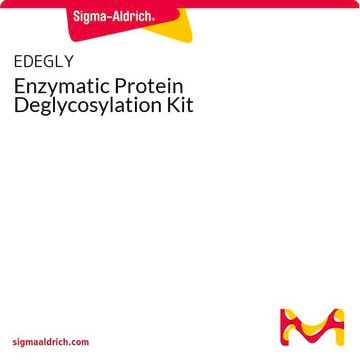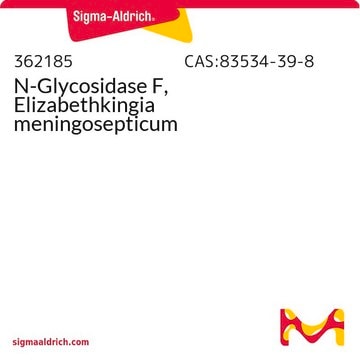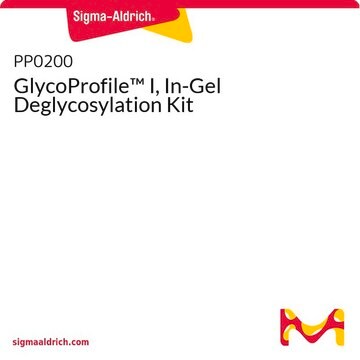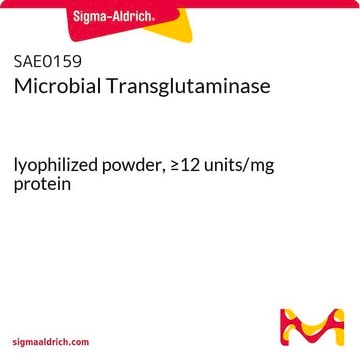EMS0001
PNGase Fast
recombinant, expressed in E. coli
Synonym(s):
N-Glycosidase F, PNGase F, Peptide N-glycosidase
About This Item
Recommended Products
recombinant
expressed in E. coli
Quality Level
conjugate
(N-linked)
grade
Proteomics Grade
form
ready-to-use solution
shipped in
wet ice
storage temp.
2-8°C
Related Categories
General description
Application
Biochem/physiol Actions
Storage Class Code
10 - Combustible liquids
Choose from one of the most recent versions:
Certificates of Analysis (COA)
Don't see the Right Version?
If you require a particular version, you can look up a specific certificate by the Lot or Batch number.
Already Own This Product?
Find documentation for the products that you have recently purchased in the Document Library.
Customers Also Viewed
Articles
Fast assessment of antibody-dependent cell-mediated cytotoxicity (ADCC) and glycoform pattern of a therapeutic antibody rituximab by FcγRIIIa affinity chromatography.
Fast assessment of antibody-dependent cell-mediated cytotoxicity (ADCC) and glycoform pattern of a therapeutic antibody rituximab by FcγRIIIa affinity chromatography.
Fast assessment of antibody-dependent cell-mediated cytotoxicity (ADCC) and glycoform pattern of a therapeutic antibody rituximab by FcγRIIIa affinity chromatography.
Fast assessment of antibody-dependent cell-mediated cytotoxicity (ADCC) and glycoform pattern of a therapeutic antibody rituximab by FcγRIIIa affinity chromatography.
Our team of scientists has experience in all areas of research including Life Science, Material Science, Chemical Synthesis, Chromatography, Analytical and many others.
Contact Technical Service



